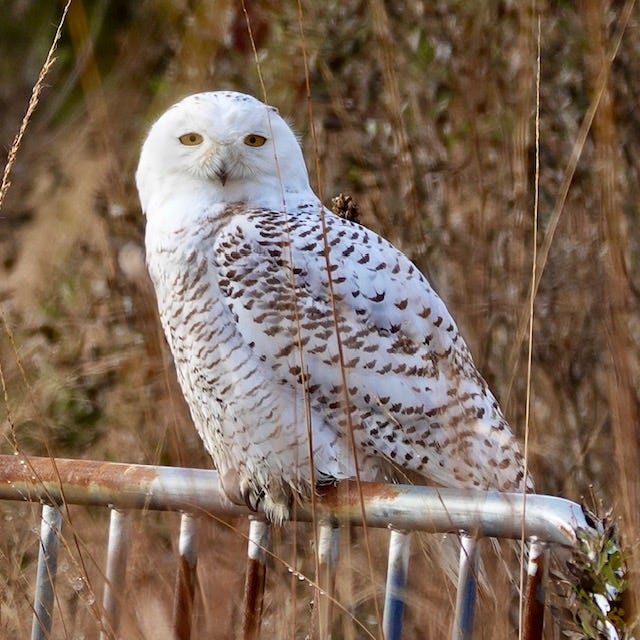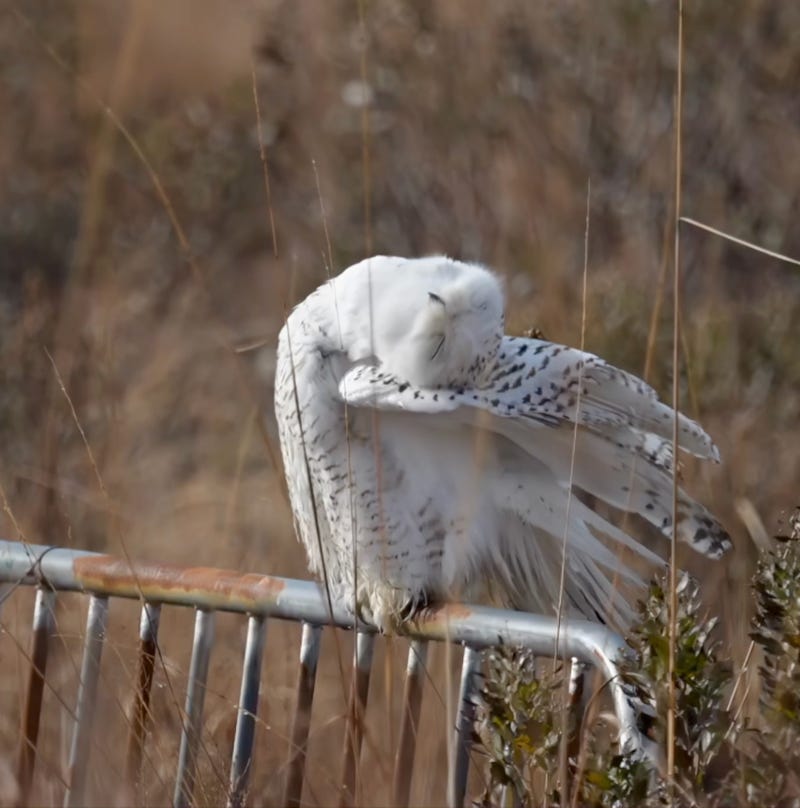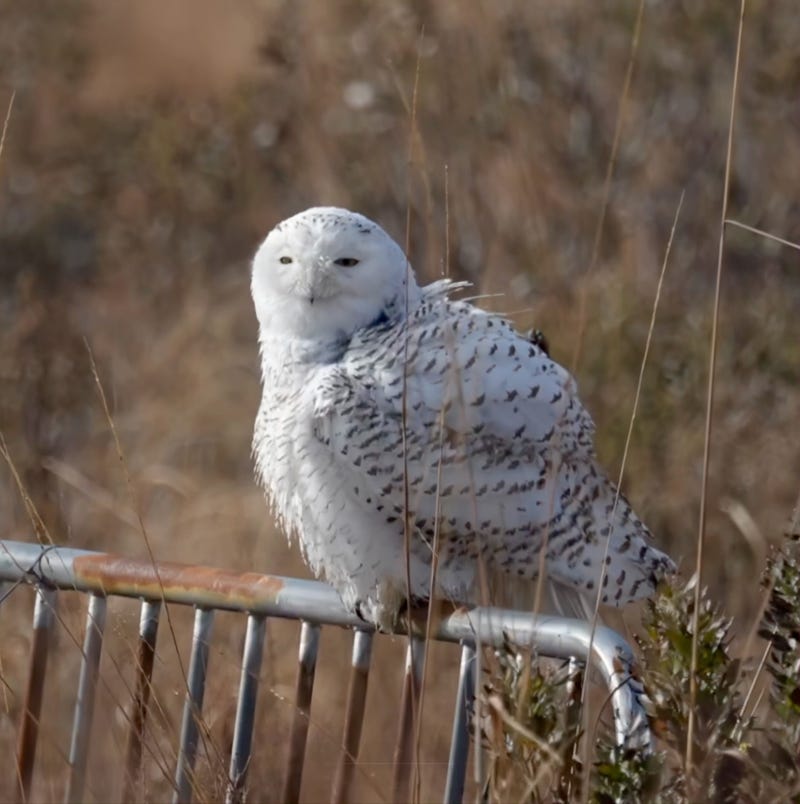
NEW YORK (1010 WINS) — What a hoot! Bird enthusiasts across New York City flocked to see a snowy owl that was spotted in Brooklyn over the holiday weekend, a rare sight in the boroughs, which are a significant flight from where the species lives in the Arctic.
David Barrett, creator and manager of Manhattan and Brooklyn Bird Alert, told 1010 WINS that “there are a limited amount of snowy owls, less than 30,000 in North America, over 1,000 miles from here they grow up.”
Birders first saw the owl gracing the skies on Saturday afternoon over and around Shirley Chisholm State Park, near the Fountain Avenue section on the edge of East New York. After the report was made, the area filled with wildlife fanatics trying to catch a glimpse or snap a picture of the yellow-eyed beauty.
“It’s a recognizable owl; all white, luminous yellow eyes, some dark barring on the wings, a large owl, majestic, everything you want,” Barrett said.
This was the first substantial sighting of the species in the city since 2022, Barrett said, a hiatus that left birders “starved of snowy owls for a couple years.”

Despite keeping residence in the Arctic, snowy owls will migrate south into southern Canada and the northern United States in what is called an irruption during the winter months. These migration changes are usually caused by an abundance of food the previous summer, leading to a baby boom of healthy chicks that migrate south, according to Project Snow Storm, an organization that crowdfunds research on snowy owl movements.
Lemmings—small rodents in the Arctic tundra that make up a big portion of a snowy owl’s summer diet—fluctuate in numbers, but Barrett told the New York Post that the birds “have no problem transitioning their hunting … to heftier New York City rats!”

The owl could decide to move around or stay in the city for the winter, but as of Sunday, seemed to be getting comfortable in Brooklyn.
“If you do go to see a snowy owl, it’s important that you stay distant from it, because humans are disruptive to them,” Barrett warned 1010 WINS. “They’re not used to seeing human beings.”
Madison Petta contributed to this report.
